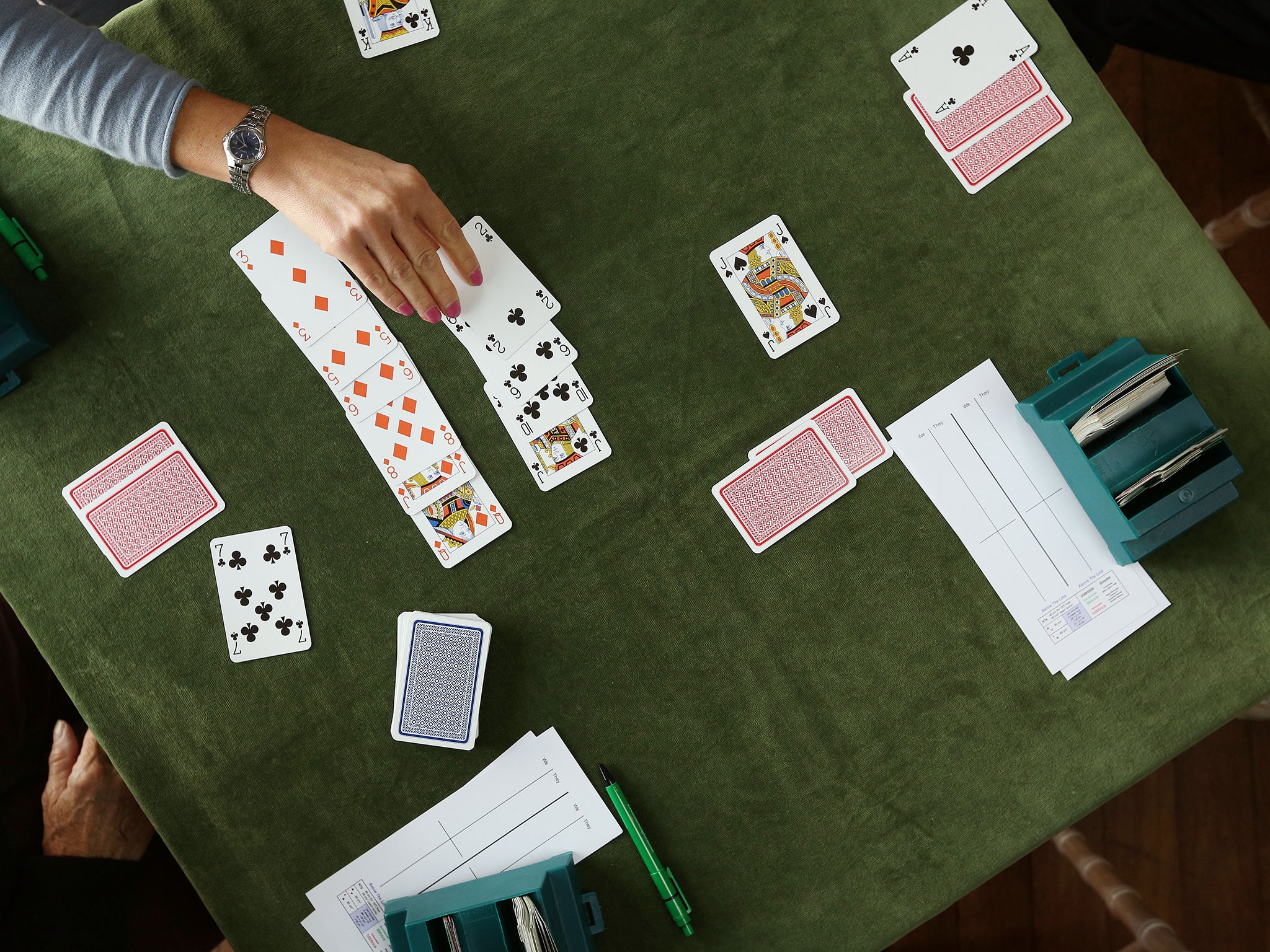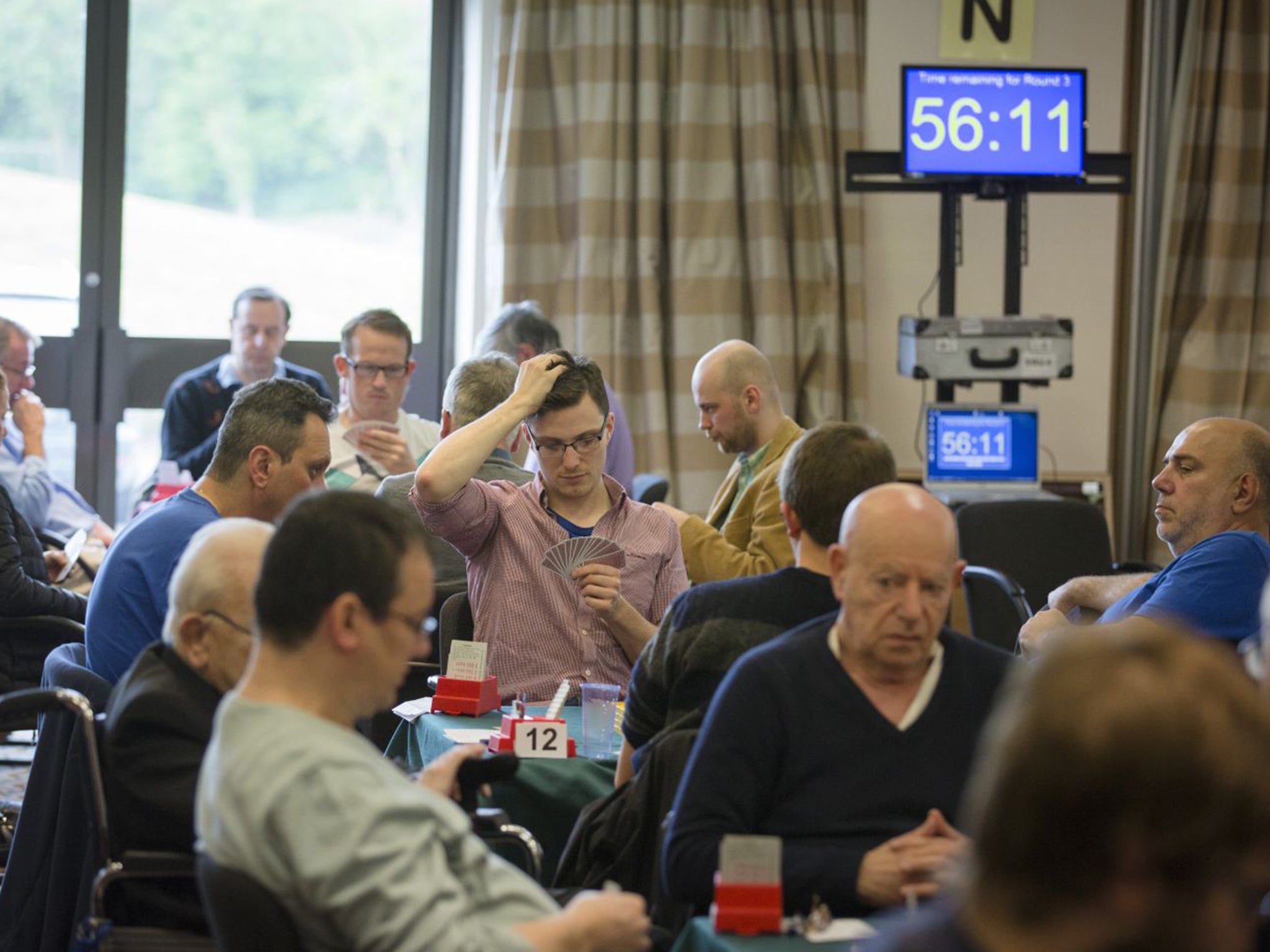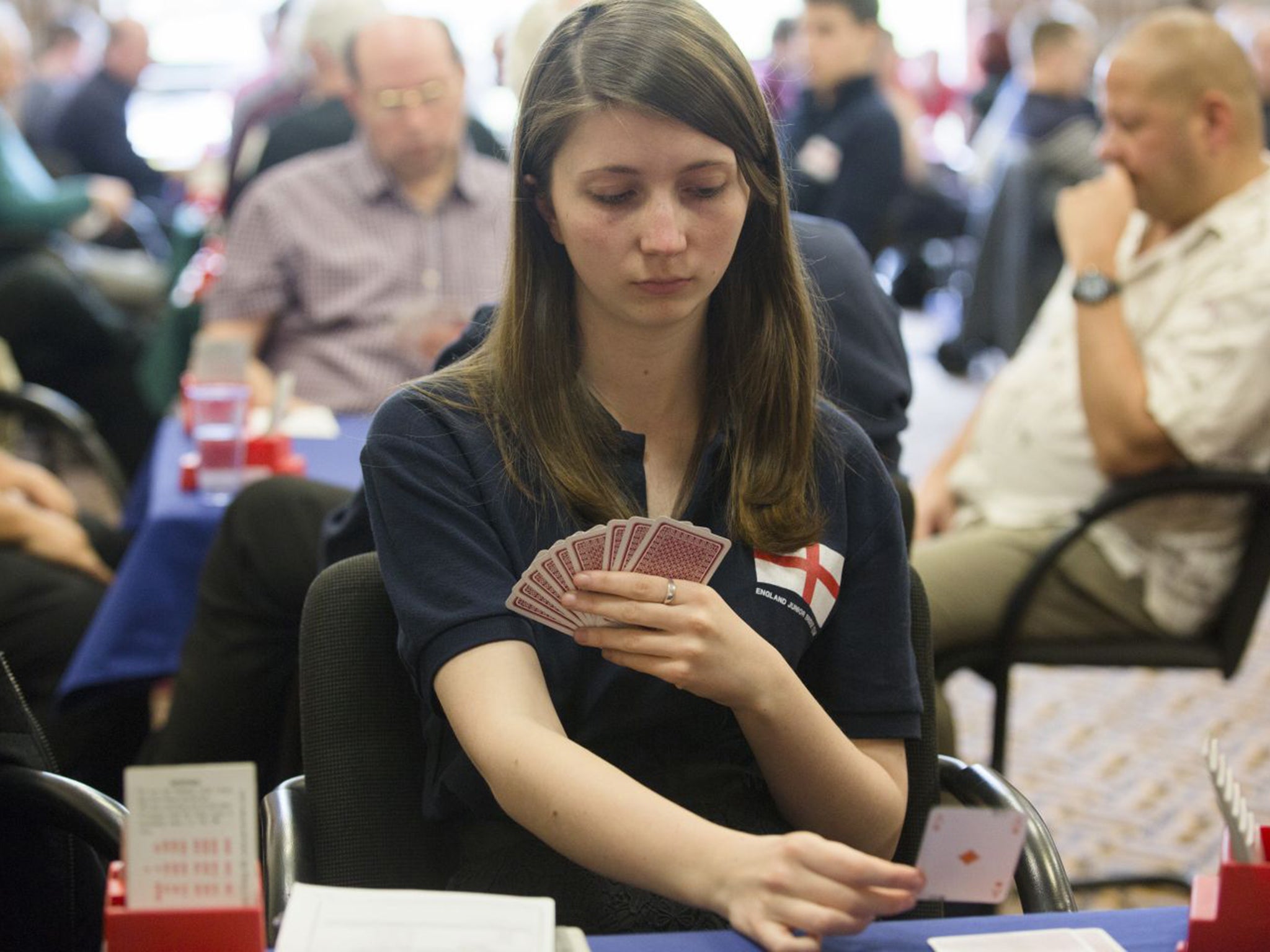Bridge - a bid too far? The game’s advocates want it classed as a sport
To observe the action, Charlie Cooper goes table-side at a top-flight tournament

The Holiday Inn in Stratford-upon-Avon is seldom listed as a great sporting arena. But sport was a hot topic at the hotel as the Schapiro Spring Foursomes – one of the premier events in the English bridge calendar – got under way.
The key question was this: might bridge, the genteel game often associated with gentlemen’s clubs and (more often these days) nursing-home day-rooms, soon be officially recognised as a sport?
Last week, a court ruling granted the English Bridge Union (EBU) the right to a judicial review to settle the question. Sport England, which controls access to a lucrative stream of lottery funding, takes the view that because it lacks any physical skill, it is no more a sport than reading, or indeed, knitting.
But thanks to the intervention of Mr Justice Mostyn last week – who admitted to a enjoying a game or two himself – bridge enthusiasts believe they have their best chance in a generation of persuading Sport England to change their minds.

“Nobody’s trying to pretend that bridge is like running around a track,” said Gordon Rainsford, director of the tournament, which has attracted 250 top ranking players from around the world. “But it is competitive. It is a mind sport.”
Unfortunately, for the uninitiated it isn’t a spectator sport. Although each table of four, arranged in rows in the Holiday Inn’s meeting rooms yesterday, became fraught islands of high drama, an onlooker would struggle to say what was going on.
“The thing bridge has against it is that it’s totally un-televisable,” said Dame Janet Wolfson de Botton, a philanthropist, and a keen player and sponsor of bridge. “You have to learn for a year before you know what’s going on.” It is, she said, a sport that sharpens the mind, requiring an “abstract way of thinking” and of predicting how a hand will develop that is, at times, even “beautiful”.
“My taxi driver told me he had the biggest laugh of his life when he read that bridge might become a sport. ‘Should knitting become a sport?’ he said. But bridge isn’t knitting. It’s highly competitive, it would be a good thing to get kids involved in.”
The game does have its youthful adherents. One of them, Laura Covill, 19, who plays for England under-25s, is competing this weekend. “We’re in a definite minority … some of the older players resent the amount of funding that goes to younger players, but it’s us who will be populating their bridge clubs in 20 years,” she said. “The main reason there are not many younger people in bridge is because it’s so expensive to play.”
A ticket for this weekend’s tournament, for example, costs £400. Ms Covill’s national team status means she gets in free, but most would not. “I absolutely could not afford to play here. I’ve already got £40,000 debt from university so paying for bridge is not on my radar – I have to eat!”

Sport England recognition, bridge advocates say, could help her generation, and secure the game’s future. It’s a view that Zia Mahmood, one of the game’s most recognisable players, shares. “It’s a slightly insular world, and the people in there,” he gestured to the games rooms, “are fanatically, passionately weird. It is a separate culture.” Mr Mahmood, 69, is a bridge superstar. Among the fanatics he knows, are some powerful people. “Bill Gates is a very keen player. He comes to tournaments with his cap on, sits in the corner and plays. He plays on the internet with Warren Buffet all the time.”
He also recalls the time when the then President of Pakistan, General Pervez Musharraf, presented him with a medal on the proviso that he play bridge with him. “It’s not necessarily brains that make a bridge player – you can have a scientific approach, a natural flair, there are many types of bridge player, but they’re usually very interesting people,” he said.
But is it a sport? Gordon Rainsford is clear: “Bridge, when played in a tournament, is a serious, competitive, gruelling activity. Those are the things I think distinguish sport.”
Join our commenting forum
Join thought-provoking conversations, follow other Independent readers and see their replies
Comments
Bookmark popover
Removed from bookmarks